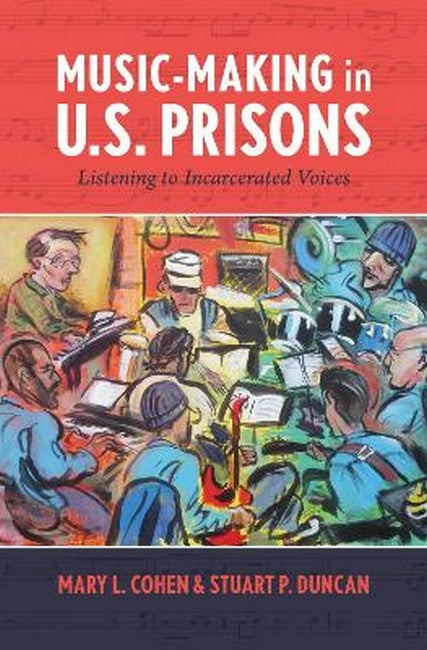Mary L. Cohen, a music education professor at the University of Iowa, researches choral singing, songwriting, and ungrading practices. Her studies are published in book chapters and in the International Journal of Research in Choral Singing, Australian Journal of Music Education, Journal of Correctional Education, International Journal of Community Music, Prison Service Journal, and International Journal of Music Education. Stuart P. Duncan holds a DMA from Cornell University and a PhD from Yale University. While at Cornell, Stuart also taught at Auburn Correction Facility, which was a profound experience that has fueled a passion for creating powerful educational experiences, both musical and more broadly. Stuart currently works at the University of Connecticut as a Director of Programming and Diversity Recruitment.
Request Academic Copy
Please copy the ISBN for submitting review copy form
Description
1: Why Music-Making in Prisons? 2: "Might Is Not Always Right": Historical Reflections of Music-Making in U.S. Prisons 3: "In Encourage Everyone to Step Out of Their Comfort Zone": Developing Agency in Instrumental Music Education in Prisons 4: "Their Singing Saved Me": Social Awareness through Choral Singing 5: Dynamic Nature of Songwriting in Prisons: Interactions among Singers, Prison Staff, and Audience Members 6: "So Much More": Pedagogies that Support Human Dignity and Social Responsibility for Musical Communities Working toward Abolition of the Prison Industrial Complex
"Music-Making in U.S. Prisons is an important work that demonstrates the power of collaborative musical art-making within prisons with an illustrative collection of examples from many locations and across timespans. This book is grounded in humanity, both an incarcerated individual's understanding of their own humanity, and society's perception of it within incarcerated people. I believe it will spark the imagination of many practitioners and could encourage more dramatic change in the prison-industrial complex through the mechanisms described: connecting people inside to the community outside and reinforcing the humanity and dignity of everyone involved." -Robert Pollock, Prison Writing Program Manager, PEN America "At just the right moment-as art is increasingly recognized as a potent weapon in the ongoing fight against mass incarceration-this thoughtful, artful, humanizing analysis of music's role as an agent of healing and collective action is critical reading." -Dr. Baz Dreisinger, author of Incarceration Nations: A Journey to Justice in Prisons Around the World

